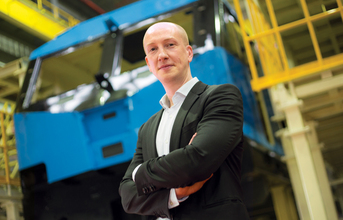
Elaborating further on the project, he explains, "As mentioned, we will be supplying Indian Railways with 800 double section freight electric locomotives with associated long-term maintenance, which will be a big step towards infrastructure modernisation and upgrade. This project is the largest FDI that Indian Railways has ever entered into and includes the set-up of a plant at and two maintenance depots at Saharanpur, Uttar Pradesh and Nagpur, Maharashtra."
Beaudoin, who is personally proud of this project, further adds, "We are also working towards building the overall ecosystem to develop the indigenous capability with integration of design, prototype, testing, manufacturing, maintenance and services, thus, making India self-reliant in the engineering technology space. We take great pride in our work and every project that Alstom has executed in India is done exceptionally well. Of note right now will be the Madhepura e-loco project. It is the first order of its kind. Our joint venture with Indian Railways has to be a strong statement on the benefits of public-private partnerships and will benefit sustainable freight movement immensely. Added to this is a chance for Alstom Foundation to contribute towards the social and economic needs of the people of Madhepura - an area that is wanting in terms of educational opportunities and healthcare. This project is the very showcase of all of our objectives - safety, sustainability, localisation, efficiency and commitment in our products."
Besides JV with Indian Railways, yet another project that adds feather in the cap is Dedicated Freight Corridor. "Our work on Dedicated Freight Corridor, under the aegis of the World Bank is another project we are proud to be associated with. This corridor will decrease traffic in the mainline network and increase speed and efficiency of freight movement," he continues.
Making it in India
Highlighting on the company's contributions towards Make in India, Beaudoin states, "Our Kochi, Bangalore, Chennai and Lucknow metro projects were all executed out of our Sri City plant and our engineering centre in Bangalore. The Kochi Metro project was in fact the first example of a 100 percent made in India metro project where we executed end-toend solutions ahead of schedule - power, tracks, signalling, rolling stock, etc. The Madhepura project again is another testament towards Make in India attributed not just because of the manufacturing, localisation and skilling but also our social upliftment work there."
He appreciated the Government of India's initiative by saying, "The Make in India programme encourages and incentivises multinationals as well as domestic companies to manufacture their products within the country. Further, the Department of Industrial Policy and Procurement has rightly released the public procurement guidelines, which provide for mandatory procurement of locally manufactured goods and locally provided services with a price preference clause to incentivise domestic manufacturing.
(Continued on next page)


























